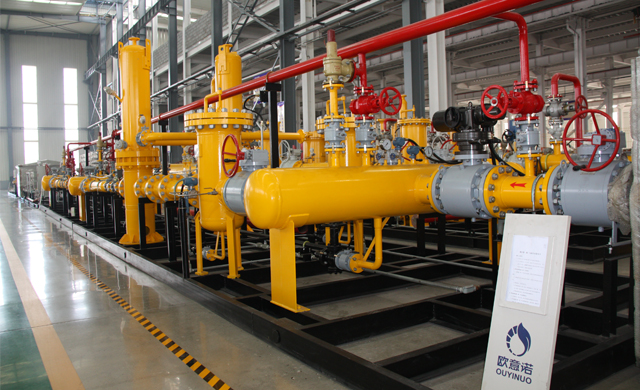
Jul . 26, 2024 05:37
Back to list
Examining the Importance of Natural Gas Filtration Systems in Modern Energy Infrastructure and Environmental Protection
Understanding Natural Gas Filters Importance and Functionality
Natural gas is a critical energy source that powers homes, industries, and transportation systems all over the globe. As the demand for cleaner energy solutions increases, natural gas has gained prominence due to its relatively lower environmental impact compared to coal and oil. However, before natural gas can be utilized safely and effectively, it must undergo a filtering process to remove impurities and contaminants. This is where natural gas filters play a vital role.
Natural gas filters are designed to remove unwanted substances from natural gas, ensuring that it is clean and safe for use. These substances can include solids, liquids, and even certain gases that pose a risk to both the efficiency of gas equipment and the safety of users. Common contaminants in natural gas include water vapor, hydrogen sulfide, carbon dioxide, and small particulates like dust and dirt. Without proper filtration, these impurities can lead to equipment corrosion, reduced energy efficiency, and even dangerous operational conditions.
One of the primary functions of natural gas filters is to prevent sediment and particles from entering pipelines. Sediment can accumulate over time, leading to blockages that can disrupt the flow of gas. Additionally, particulates can cause wear and tear on valves and other components, leading to costly repairs or replacements. By employing filters, companies can significantly extend the lifespan of their equipment, thereby reducing maintenance costs.
Natural gas filters come in various types, each designed for specific applications and contaminants. One common type is the coalescing filter, which is specifically designed to remove water and liquid hydrocarbons. This type of filter works by forcing the gas through a series of coalescing elements that trap water droplets, allowing them to combine and separate from the gas stream. The result is dryer gas, which is essential for preventing corrosion and fouling inside pipelines and combustion engines.
natural gas filter

Another essential type of filter is the activated carbon filter, used primarily for removing gases such as hydrogen sulfide and carbon dioxide. Activated carbon has a porous structure that effectively adsorbs certain gases, cleaning the natural gas before it reaches consumers. This filtration process is particularly important in areas where natural gas fields are rich in sour gas (gas containing hydrogen sulfide), which can be hazardous if not treated adequately.
Furthermore, the maintenance of natural gas filters is crucial to their effectiveness. Regular monitoring and timely replacement of filter elements are necessary to ensure optimal performance and prevent any operational issues. Many companies employ advanced technologies to track filter performance, enabling them to predict when a filter needs to be cleaned or replaced.
The increasing focus on environmental sustainability and the transition to cleaner energy sources also emphasizes the importance of natural gas filtration. Advances in filtration technology not only improve the performance of natural gas systems but also reduce emissions and enhance overall energy efficiency. As the energy sector continues to evolve, the role of natural gas filters will remain pivotal.
In conclusion, natural gas filters are indispensable in ensuring that natural gas is delivered safely and efficiently. By removing harmful contaminants, these filters protect equipment, enhance energy efficiency, and contribute to a safer environment for all users. As the demand for natural gas continues to grow, the technology and practices surrounding filtration will undoubtedly advance, further solidifying the importance of this critical process in the energy landscape.
Latest news
-
Safety Valve Spring-Loaded Design Overpressure ProtectionNewsJul.25,2025
-
Precision Voltage Regulator AC5 Accuracy Grade PerformanceNewsJul.25,2025
-
Natural Gas Pressure Regulating Skid Industrial Pipeline ApplicationsNewsJul.25,2025
-
Natural Gas Filter Stainless Steel Mesh Element DesignNewsJul.25,2025
-
Gas Pressure Regulator Valve Direct-Acting Spring-Loaded DesignNewsJul.25,2025
-
Decompression Equipment Multi-Stage Heat Exchange System DesignNewsJul.25,2025

